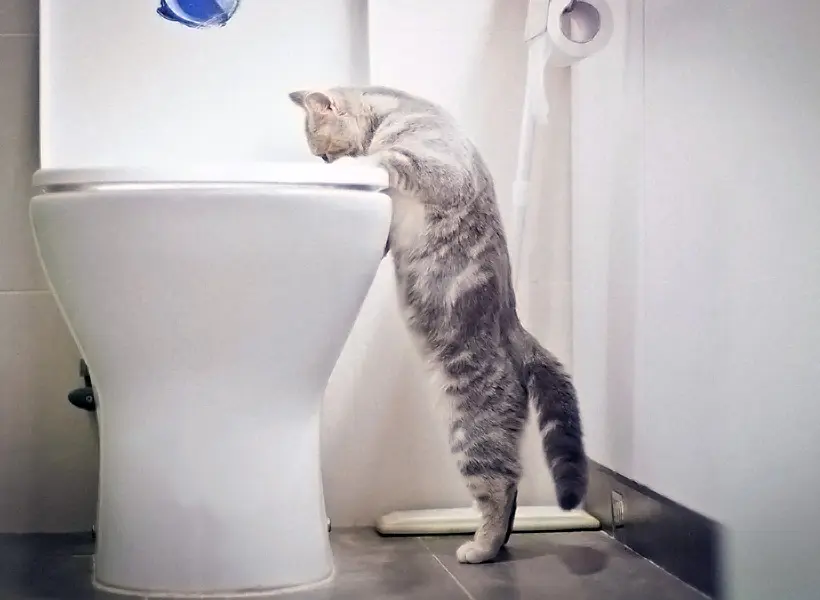Reasons Flushing Cat Poop Down Your Toilet Isn't a Good Idea - Advice for Proper Handling
Reasons Flushing Cat Poop Down Your Toilet Isn't a Good Idea - Advice for Proper Handling
Blog Article
Just about everyone has their personal beliefs on the subject of Can You Flush Cat Poo or Litter Down the Toilet?.

Introduction
As pet cat proprietors, it's essential to bear in mind how we dispose of our feline pals' waste. While it might appear hassle-free to flush feline poop down the commode, this technique can have destructive consequences for both the atmosphere and human health.
Ecological Impact
Flushing cat poop introduces harmful microorganisms and bloodsuckers into the water, posturing a substantial risk to marine ecosystems. These pollutants can adversely affect aquatic life and concession water quality.
Wellness Risks
In addition to environmental concerns, flushing pet cat waste can likewise position wellness risks to people. Pet cat feces may have Toxoplasma gondii, a parasite that can create toxoplasmosis-- a potentially extreme ailment, specifically for expecting ladies and individuals with weakened body immune systems.
Alternatives to Flushing
Luckily, there are much safer and more responsible means to take care of pet cat poop. Take into consideration the adhering to options:
1. Scoop and Dispose in Trash
One of the most usual method of dealing with feline poop is to scoop it into a biodegradable bag and throw it in the garbage. Make certain to use a devoted trash scoop and get rid of the waste promptly.
2. Use Biodegradable Litter
Opt for naturally degradable feline clutter made from products such as corn or wheat. These litters are eco-friendly and can be securely thrown away in the garbage.
3. Hide in the Yard
If you have a yard, take into consideration burying pet cat waste in a designated area far from vegetable gardens and water resources. Make sure to dig deep adequate to prevent contamination of groundwater.
4. Set Up a Pet Waste Disposal System
Purchase a family pet garbage disposal system specifically developed for feline waste. These systems make use of enzymes to break down the waste, reducing odor and ecological impact.
Conclusion
Accountable animal ownership extends past providing food and sanctuary-- it additionally entails proper waste monitoring. By refraining from flushing cat poop down the commode and selecting alternate disposal techniques, we can lessen our ecological footprint and protect human health.
Why You Should Never Flush Cat Poop Down the Toilet
A rose by any other name might smell as sweet, but not all poop is created equal. Toilets, and our sewage systems, are designed for human excrement, not animal waste. It might seem like it couldn’t hurt to toss cat feces into the loo, but it’s not a good idea to flush cat poop in the toilet.
First and foremost, assuming your cat uses a litter box, any waste is going to have litter on it. And even the smallest amount of litter can wreak havoc on plumbing.
Over time, small amounts build up, filling up your septic system. Most litter sold today is clumping; it is made from a type of clay that hardens when it gets wet. Ever tried to scrape old clumps from the bottom of a litter box? You know just how cement-hard it can get!
Now imagine just a small clump of that stuck in your pipes. A simple de-clogger like Drano isn’t going to cut it. And that means it’s going to cost you big time to fix it.
Parasitic Contamination
Believe it or not, your healthy kitty may be harboring a nasty parasite. Only cats excrete Toxoplasma in their feces. Yet it rarely causes serious health issues in the cats that are infected. Most people will be fine too if infected. Only pregnant women and people with compromised immune systems are at risk. (If you’ve ever heard how women who are expecting are excused from litter cleaning duty, Toxoplasma is why.)
But other animals may have a problem if infected with the parasite. And human water treatment systems aren’t designed to handle it. As a result, the systems don’t remove the parasite before discharging wastewater into local waterways. Fish, shellfish, and other marine life — otters in particular — are susceptible to toxoplasma. If exposed, most will end up with brain damage and many will die.
Depending on the species of fish, they may end up on someone’s fish hook and, ultimately on someone’s dinner plate. If that someone has a chronic illness, they’re at risk.
Skip the Toilet Training
We know there are folks out there who like to toilet train their cats. And we give them props, it takes a lot of work. But thanks to the toxoplasma, it’s not a good idea.

I am just very fascinated by Don’t flush cat feces down the toilet and I really hope you enjoyed the blog posting. Sharing is caring. You won't know, you may be helping someone out. We truly appreciate reading our article about How to Dispose of Cat Poop and Litter Without Plastic Bags.
Instant Quote Report this page